Sohum Lohia's journey to becoming an International Master through his mother's eyes
Sohum Lohia, a 15-year-old prodigy from England, recently became an International Master. He achieved his final IM norm as well as the Bronze medal at the Southend Easter Chess Festival. Usually, when a player earns a title, we speak to the player. But this time, we are doing something different. This article is about everything that goes on behind the scenes. It's Sohum’s story told by his mother, Aarti Lohia. She is the person who has been there through every high and every low in Sohum’s journey. Read the article to know their story. Photo: Linda Brownlee
The other half of the journey!
Aarti Lohia is someone we all have met - a chess mom. The chess moms I have seen carried tiffins during the tournament, because what if the round goes too long? The chess moms subtly keep checking their kids’ games. The chess moms wait outside the tournament halls for hours. The chess moms ride the emotional rollercoaster of every round along with their kid. They are not on the board, but they are deeply part of the game.
In this article, Aarti has shared her journey of nurturing an International Master, in her own words. If you are a chess mom yourself, or even just a parent, her journey might resonate with you. It’s natural that as a chess parent, you might feel stuck or overwhelmed in your child’s journey. That’s why Aarti’s perspectives might guide you in your own path.
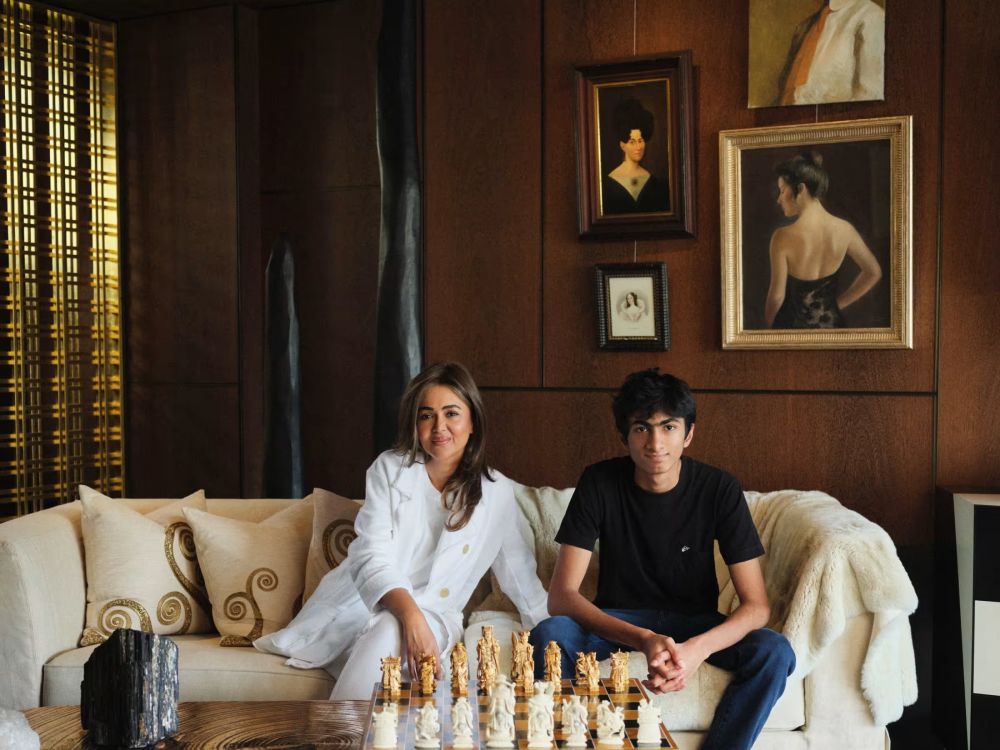
Q: What did Sohum’s early days look like? Did you ever imagine back then that this would become such a big part of your lives?
A: Like many families, we often found ourselves gathered around a chessboard during our free time. It was never about competition, just a quiet, thoughtful way to spend time together. Our love for the game deepened when we lived in Singapore. That’s where Sohum, at just five years old, picked up his first chess pieces. He was instantly captivated not just by the game, but by the mystery of how each piece moved across the board! What began as a simple pastime soon became a quiet fascination for Sohum. For an entire year, he experimented, explored, and learned on his terms. At that point, I still saw chess as a casual game, not something we’d take too seriously.
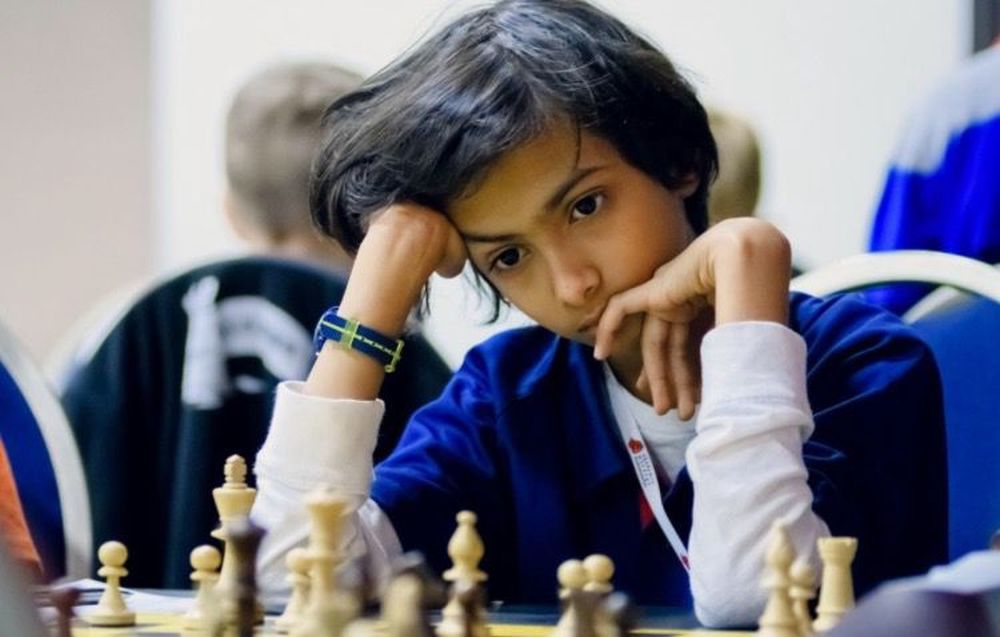
Everything changed when, at age six, I entered Sohum into a kindergarten chess tournament. To our surprise, an Indian chess coach attending the event noticed Sohum’s potential and encouraged me to consider formal training. Until then, I hadn’t even known that structured training or competitive chess circuits existed for children that young. It was eye-opening!
From ages six to seven, Sohum trained intermittently with a coach from India. However, navigating the local chess scene in Singapore proved difficult. The Singapore Chess Federation wasn’t particularly supportive of Indian players, and local coaching opportunities were mostly reserved for native children. At seven, our family relocated to the UK. It was a major turning point, and not an easy one. Moving continents with three children was overwhelming, and finding the right coaches while also managing a federation change posed its own challenges. Naturally, Sohum’s training took a hit, and he fell behind by almost a year.
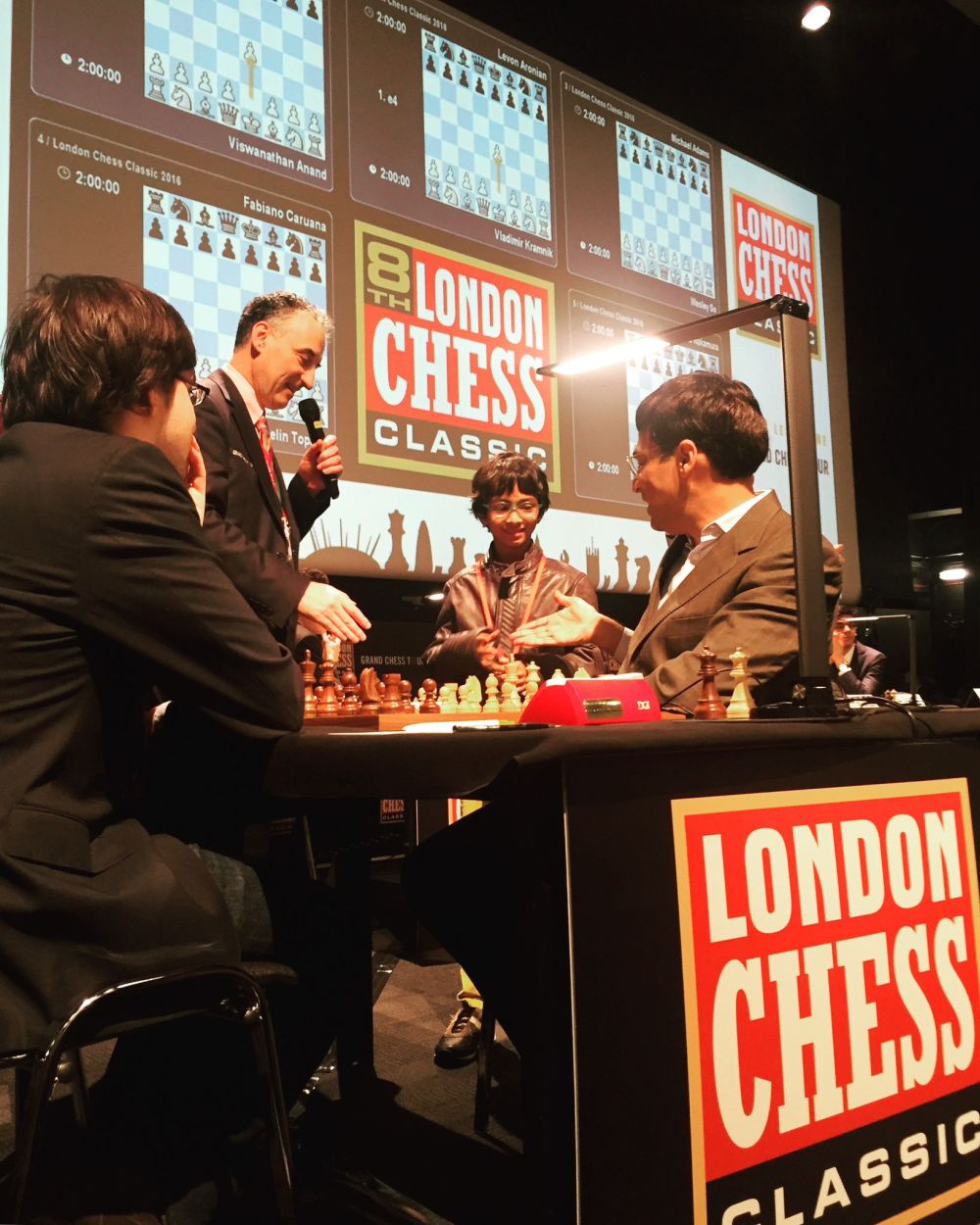
That setback didn’t last long. In London, chess organizer Malcolm Pein extended a helping hand, and soon after, Sohum competed in the British Chess Championships. At age eight, he tied for first place in the Under-8 category. The following years were even more impressive: he went on to win the Under-9, Under-10, and Under-11 titles (the last two in the same year), breaking a long-standing record! It was after that first British Championship win that I realized chess had evolved from a family hobby into something much larger. It had become a central part of our lives - not just a game, but a journey.
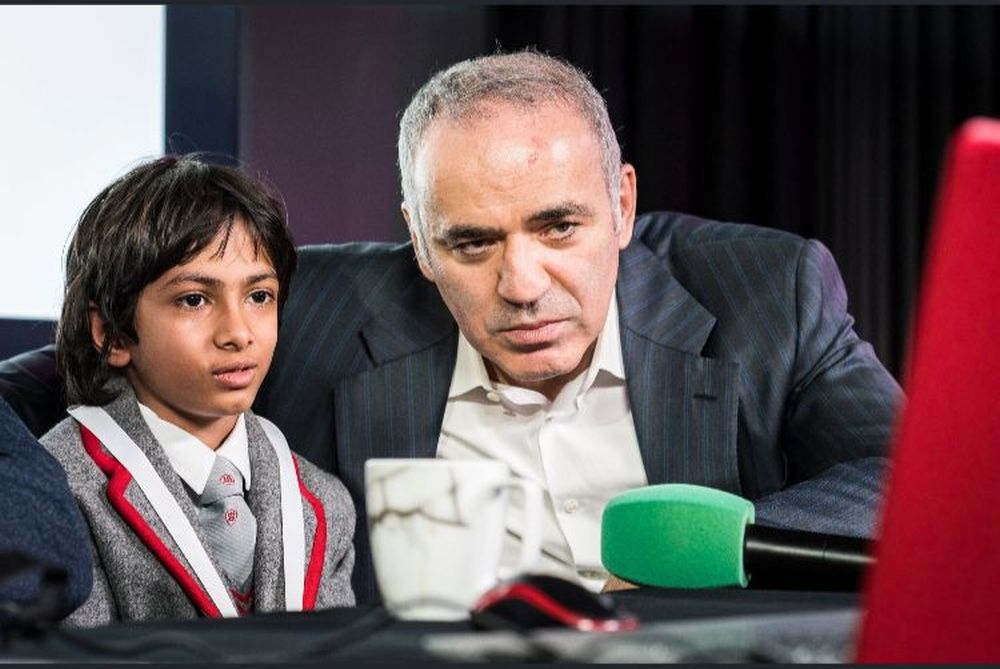
Q: If a child is pursuing chess seriously, it requires commitment not only from him but from the whole family. How does your family help Sohum pursue chess?
A: Absolutely! Pursuing any sport seriously requires a collective commitment from the entire family. But with chess, there’s an added layer of intensity; the highs are high, the lows are very low. Then there’s the constant travel. In many ways, it becomes a full-time job for the parent who accompanies the child. I have been a hands-on, full-time “chess mum” from the very beginning, accompanying Sohum to every tournament. Each trip requires careful planning, not just around chess, but also around the needs of our family back home. When I travel with Sohum, my husband often steps in to care for our other children - a dynamic that requires constant teamwork and flexibility.
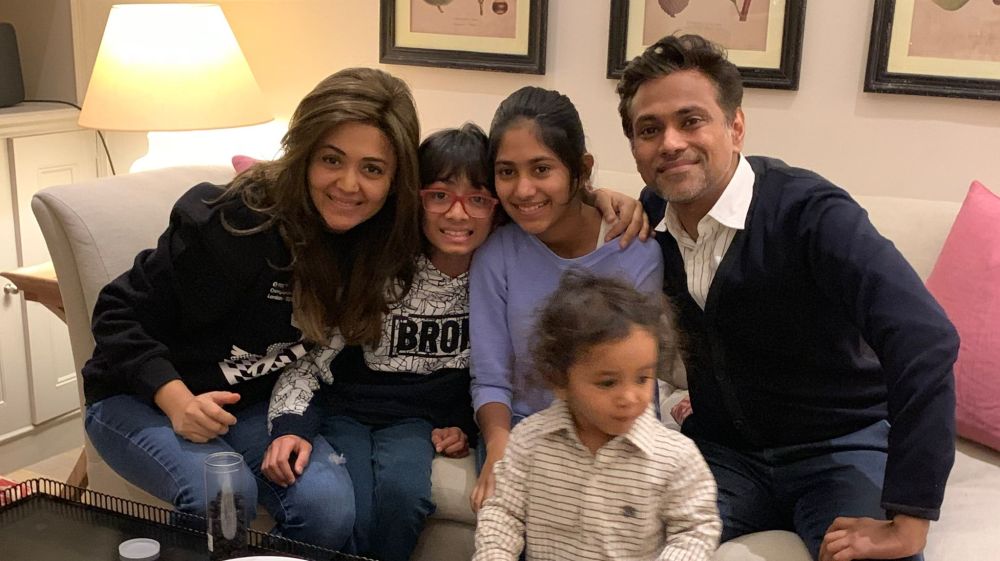
It’s particularly challenging when you have other children who don’t play chess. I have had to balance being present for Sohum’s development as a chess player while also managing everyday parenting, maintaining a stable family environment, and ensuring Sohum receives the right training and support.
In the early days, our extended family was skeptical about the level of commitment chess would require. But once results began to come in, it became easier to show that the investment of time and effort was worthwhile. My daughter has been one of our biggest supporters throughout this journey. Her understanding, patience, and encouragement have been invaluable, both to me and to Sohum.
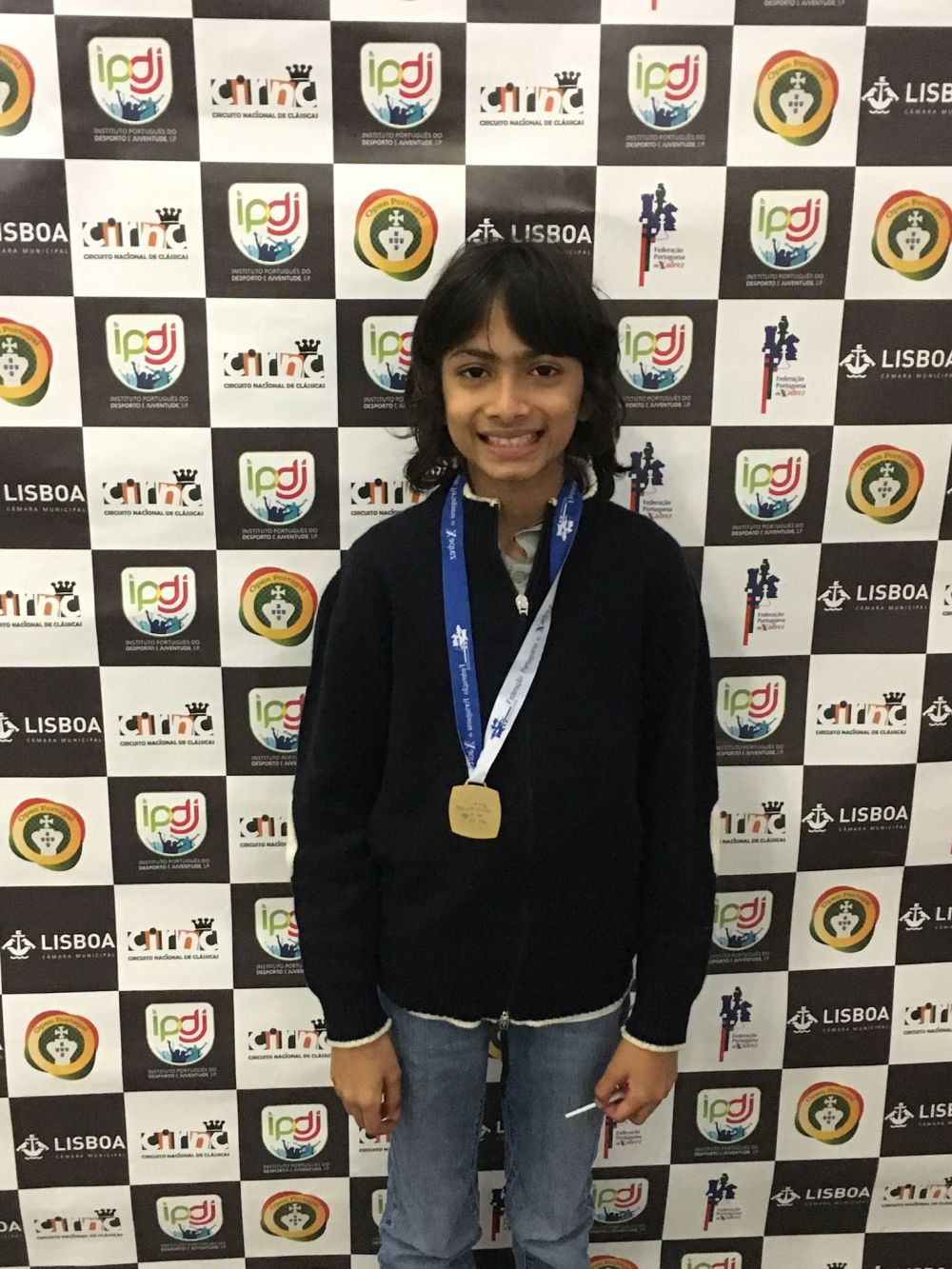
Q: What have been the biggest challenges and joys in this journey?
A: The biggest challenge has been finding balance between being a wife, mother to three children, running a household, fulfilling my responsibilities as Chair of the family foundation, and staying connected to my creative passions - all while being fully present for Sohum as he navigates the demanding world of competitive chess!
Chess isn’t just about the sport; it’s about the life that forms around it. We have had to become incredibly adaptable. Travel disruptions, long days in unfamiliar cities, difficult weather, and hotel rooms that feel far from home - they’re all part of the journey. It’s not easy, especially with a young child in tow. When my youngest, Shorya, travels with us, I make him follow the UK curriculum while on the road, because I never want him to feel like he’s missing out while supporting his brother. These small, thoughtful decisions are how we keep the family grounded.
But despite the challenges, the joy has been immeasurable. Watching Sohum grow - not just as a chess player, but as a focused, determined young man has been one of the greatest privileges of my life. At just 15, he has earned the title of International Master. To see his dream take shape, one tournament, one training session, one sacrifice at a time, is something that moves me deeply.
A game from the Southend Easter Chess Festival, the event where Sohum scored his final International Master norm:
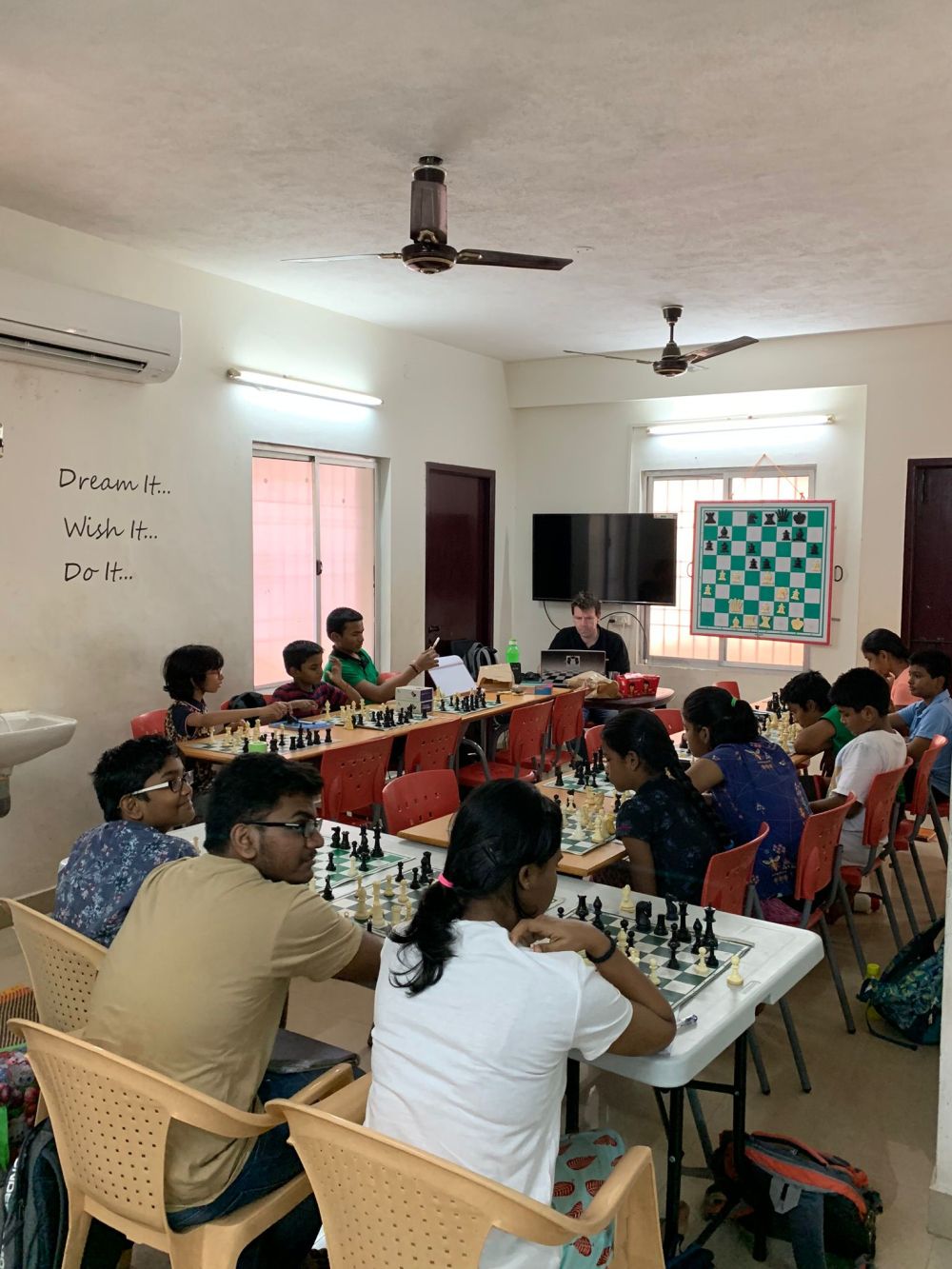
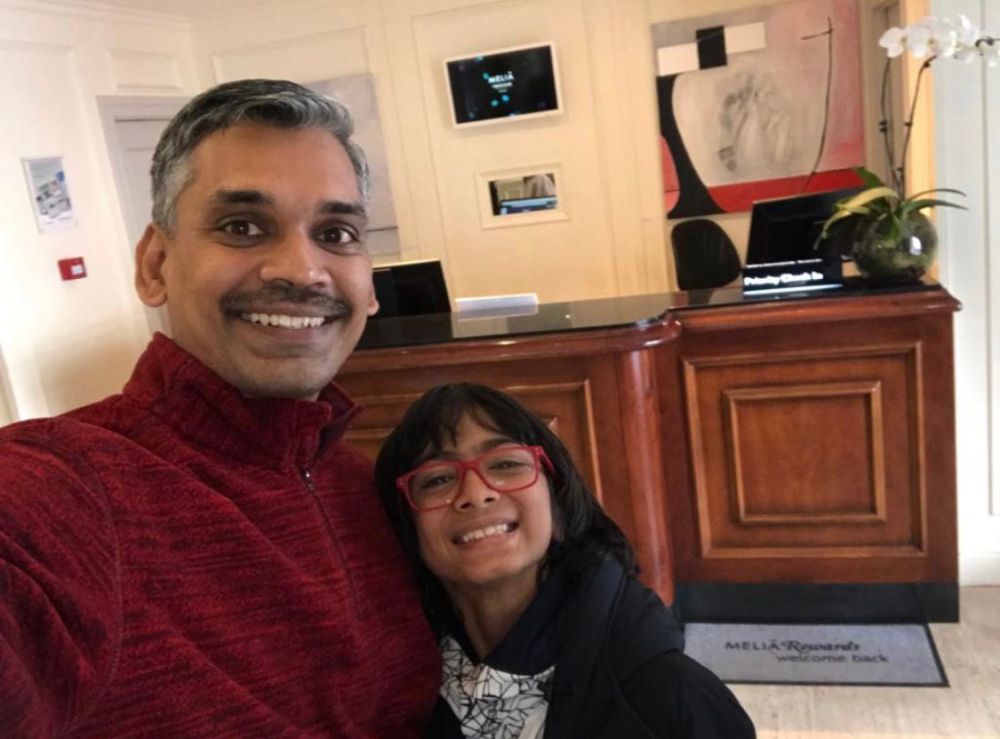
There have been moments of self-doubt and countless moments of exhaustion, but they are always outweighed by the pride and fulfillment I feel when I see Sohum play with heart, discipline, and grace. I am incredibly grateful for the exceptional coaches who have guided him, and for the unwavering love and support of my friends and family. It truly takes a village, and our village has helped Sohum soar!
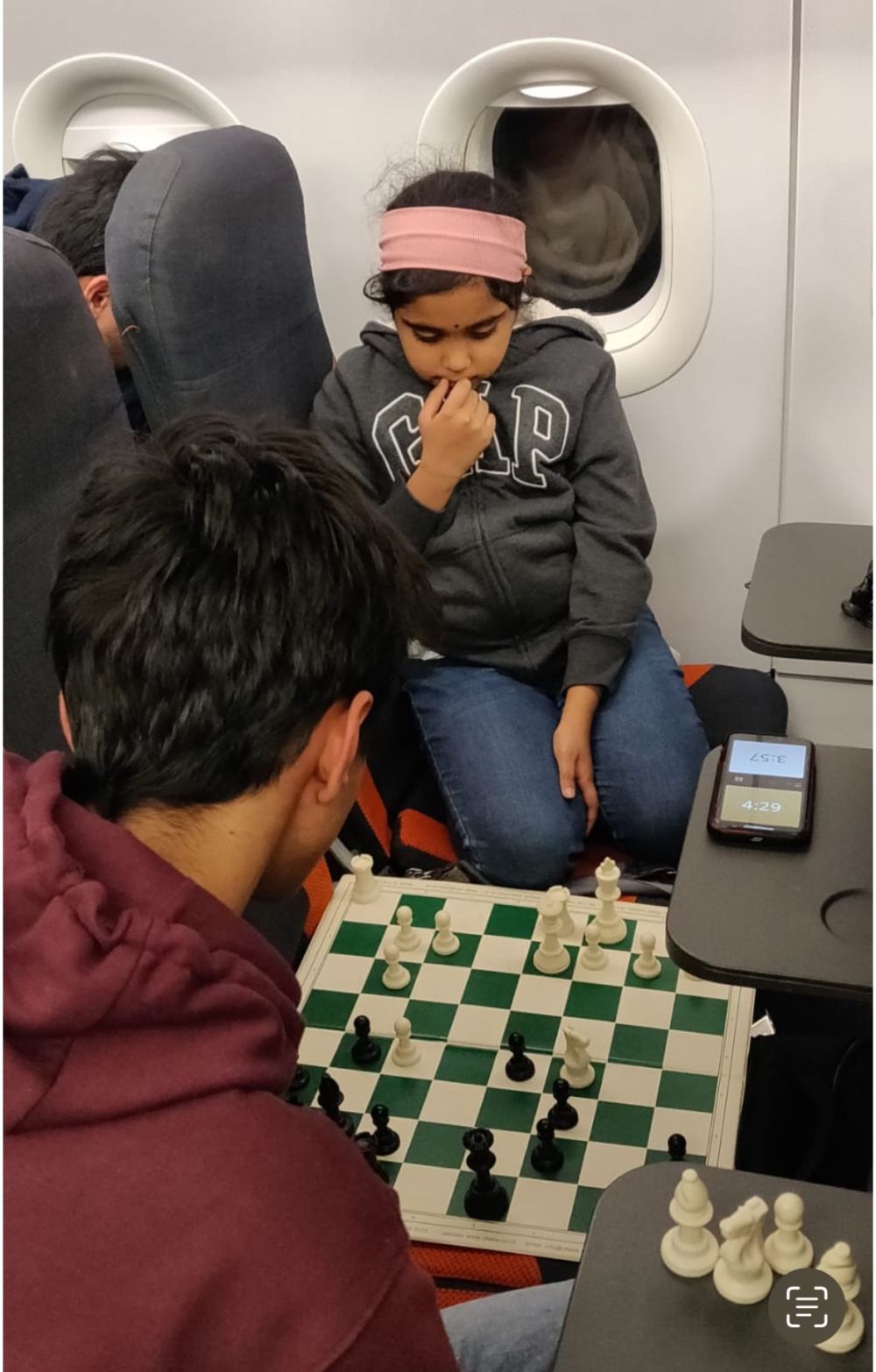
Q: You travel with Sohum for tournaments. How do you manage your own professional and personal life alongside his chess career?
A: With great difficulty and with a great deal of intention! When Sohum turned seven and it became clear that chess was more than just a passing interest, I made the conscious decision to step back from my professional life to support his journey. For several years, I put my own career on pause to be fully present for him. I only returned to work when he turned 15 - a decision that came with its own complexities.
Now, when I travel with Sohum, my days are a constant juggling act. Between his tournament preparations, coaching sessions, and emotional support, I am also taking work calls, attending Zoom meetings, and staying on top of my responsibilities often from hotel rooms and tournament venues. Every trip requires detailed planning, from travel logistics to ensuring Sohum has everything he needs to perform at his best. Thankfully, I am surrounded by a strong and reliable team, both at home and professionally, who help make this multitasking possible. Their support is invaluable.
One of the biggest challenges is that each member of our family is often in a different place - traveling for work, my daughter is now at university, or chess. Finding time together isn’t easy, but we make it a point to carve out time together at the end of every tournament for a few days or every few months- no schedules, just time together as a family. That space to reconnect, laugh, and simply be with one another is something I protect fiercely.
There are days when I’m shifting between being a strategist, a creative thinker, and a mother — all within a few hours — but I’ve come to believe that when you’re following a purpose larger than yourself, you find a strength you didn’t know you had. Supporting Sohum’s dream has taught me that commitment doesn’t mean giving up who you are — it means expanding who you can be.
Q: What, according to you, was the turning point in Sohum’s journey?
A: The turning point came when Sohum achieved something remarkable — he won both the Under-11 and Under-12 national titles in the same year. Up until that moment, he had been practicing with quiet intensity, showing unwavering focus and a deep attention to detail. As his mother, I had always believed in his potential. But this dual victory was different! It was a clear sign that Sohum had not only talent but also the resilience, maturity, and staying power needed to pursue competitive chess.
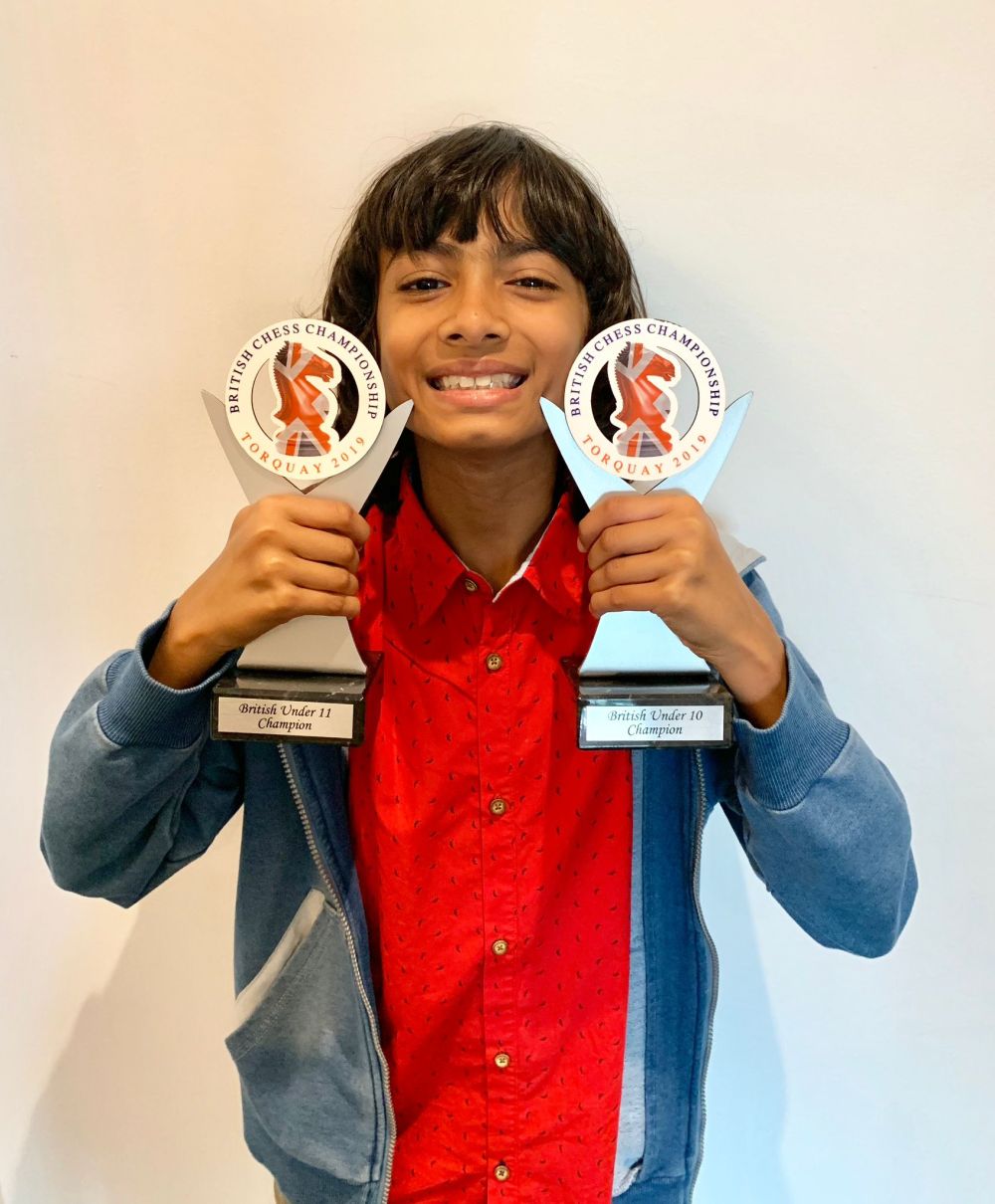
That moment shifted everything. It wasn’t just a win; it was a statement. It showed us that this wasn’t just a childhood pursuit anymore, but a path with real promise. After that, our commitment as a family deepened. We began to take his journey more seriously, not just as something he was passionate about.
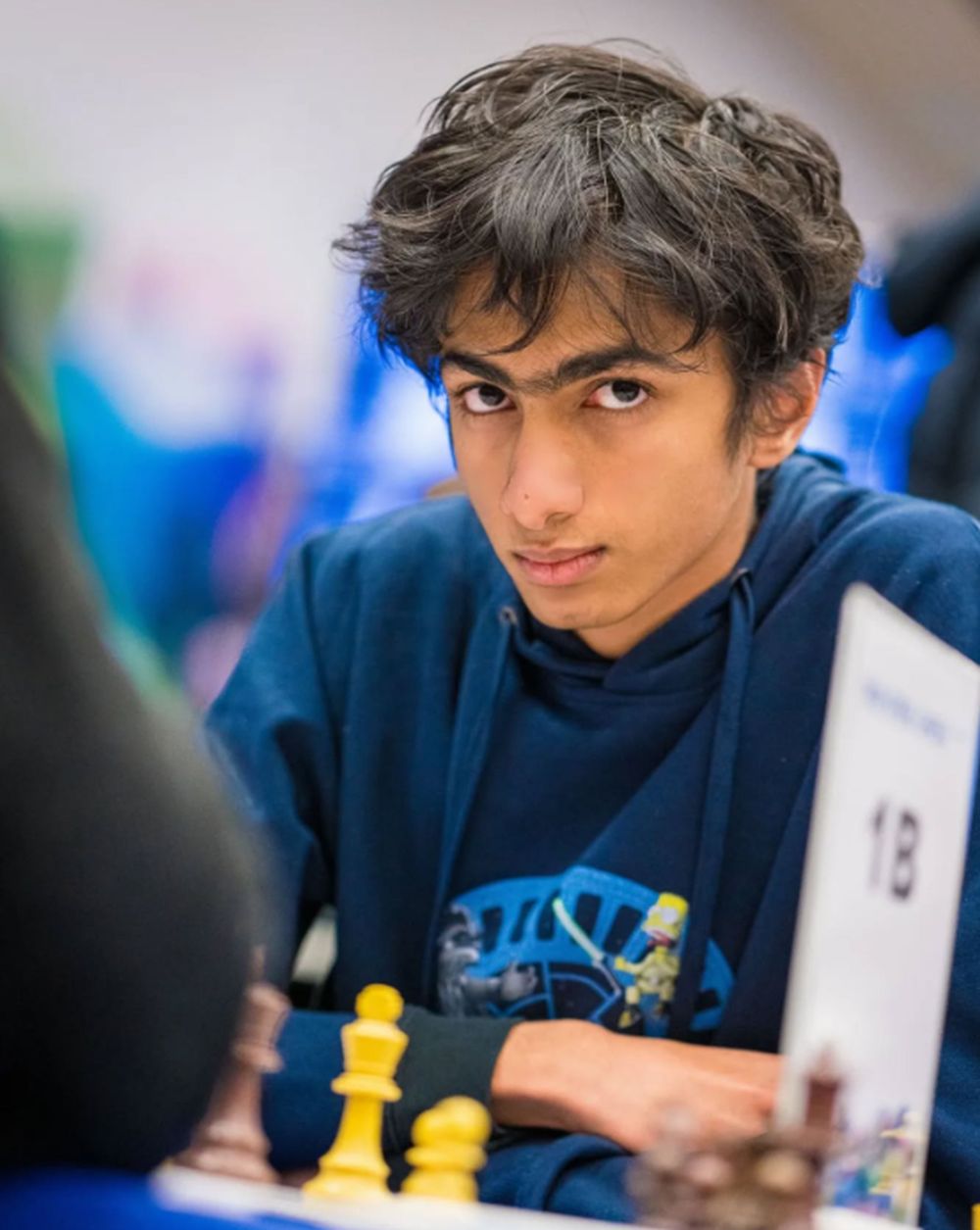
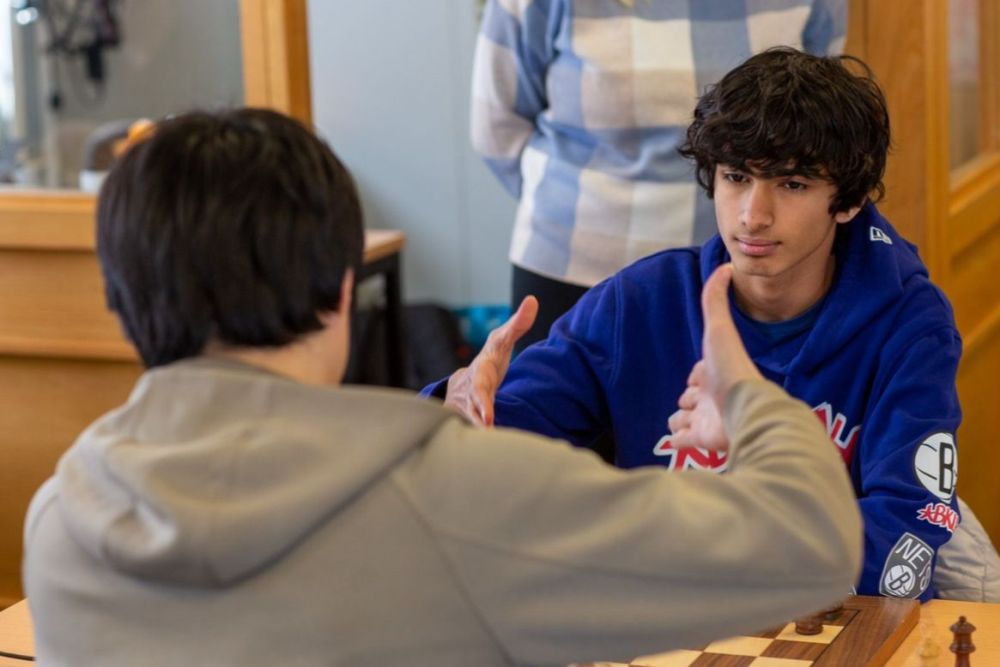
Q: Do chess players in the UK receive adequate support from schools?
A: Frankly, I have been disappointed by the lack of structured support for chess within UK schools. Despite the country’s rich chess heritage, the momentum hasn’t been sustained. What should have evolved into a strong, school-level ecosystem has, unfortunately, been left largely to nonprofits and private efforts. There are organisations working hard to introduce chess into schools, and their work is commendable. But I believe chess deserves formal recognition as a sport. When taught seriously with proper coaching, competitive structure, and institutional backing, it can become a powerful tool for developing young minds.
There is enormous untapped potential to integrate chess into the UK’s educational framework. But that will only happen when the system starts treating chess with the respect and legitimacy it truly deserves.
Q: In 2023, the UK government announced a 500,000 investment in chess. You believe your conversation with Rishi Sunak may have played a role. What did you say to him that might have sparked that support?
A: Rishi Sunak and his wife Akshata, are friends of ours, and during a casual dinner, I had the opportunity to speak with him about Sohum and the broader challenges facing chess in the UK, particularly the lack of funding and support for the sport. I shared my firsthand experience traveling with the English delegation to the World Cadets Championships, highlighting the dedication and talent of young chess players who often don’t receive the recognition they deserve. I emphasized that chess players, like athletes in any other sport, should be rewarded and encouraged to represent the nation with pride. Chess is a game of skill, strategy, and discipline, yet it has long been sidelined despite the UK’s rich sporting culture.
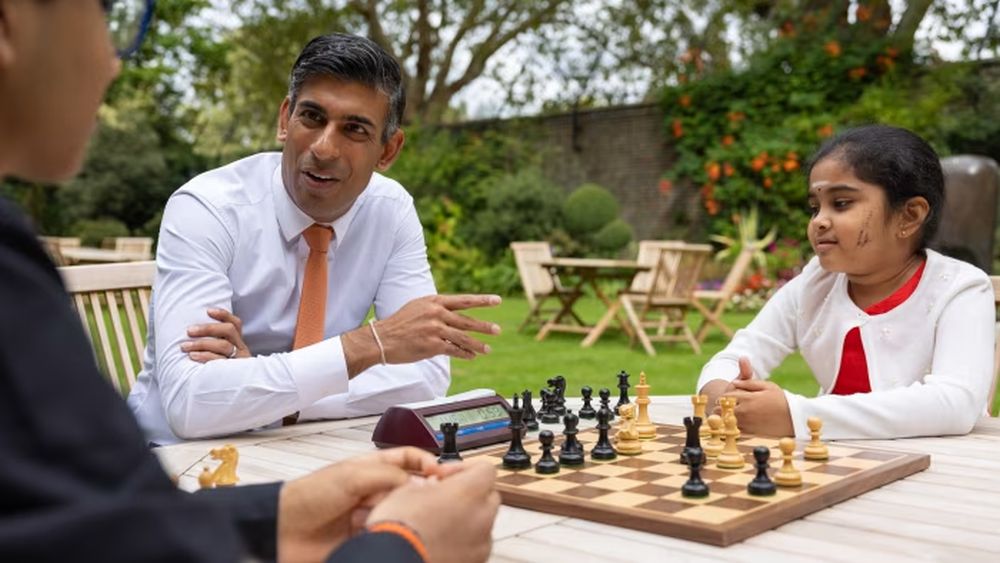
I urged him to consider giving chess the respect it deserves and to create a level playing field for these players, enabling them to bring honour to the country on the global stage. Fortunately, he listened. Shortly afterward, the government announced a significant grant — a strong vote of confidence for chess and its potential in the UK. It was encouraging to see this support take shape after our conversation.
Q: What advice would you give to other parents whose children are pursuing chess seriously?
A: Believe in your child, especially when things don’t go as planned. It’s easy to cheer and feel confident when they’re winning, but it’s during those tough, frustrating days — when progress seems slow or setbacks come — that your belief matters the most. Many parents give up at those moments, but that’s exactly when your child needs you to hold steady and keep faith.
Think long term. This isn’t about quick victories or fleeting moments of glory. It’s about nurturing passion, resilience, and growth over the years. And just as importantly, believe in yourself too. The phase of intense training, endless preparation, and hoping for success is often a lonely one. Few will truly understand the sacrifices, the late nights, and the emotional rollercoaster. That’s okay. What matters is your consistency, your commitment, and your willingness to acknowledge every bit of hard work, both yours and your child’s.
Never try to become a coach. Let coaches do their job. Many parents live vicariously through their kids- it never ends well.
Above all, remember: chess should never become a source of stress or a burden. The goal is for the child to fall in love with the sport, to find joy in every move, every challenge, every lesson. Keep showing up, keep putting in the work, and trust that the rewards — in growth, confidence, and achievement — will follow.



